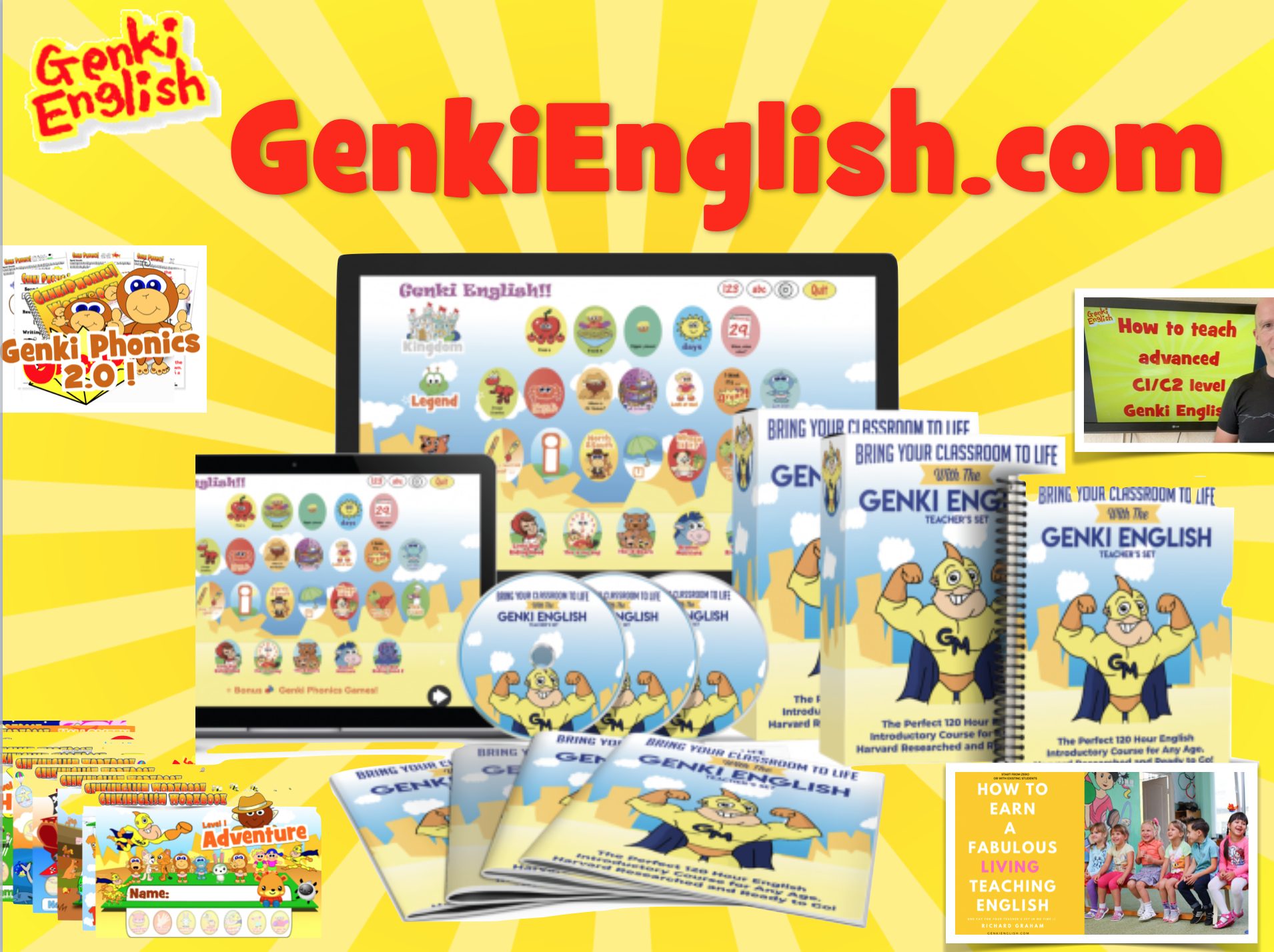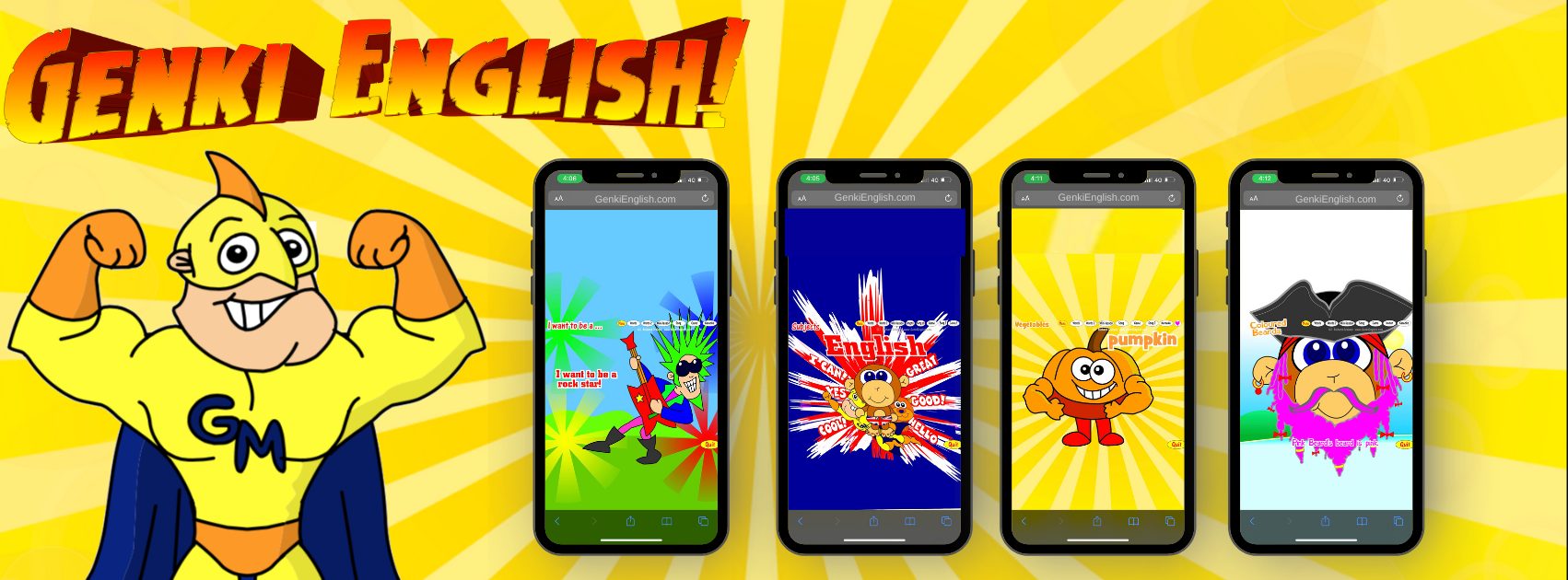Being “Genki” is all about energy. “Genki” literally means “fun” “exciting” and “full of life”.
Ninja Tip: To explain to adults, if you’ve had ten beers you’re probably not feeling very genki. If you’ve just had the best day of your life, you’re probably feeling very genki. 🙂
And, as teachers, how skillful we are at using that energy determines if we have a great class or not.
Kids too slow and lethargic? Let’s change the energy.
Kids bouncing off the walls and going too crazy? Let’s change the energy.
And it’s the same in any industry, whether you are a Fortune 500 CEO, a dancer or filmmaker or just any regular job where you need to wake up in the morning feeling like you own the day.
For example, this week I was doing a submission for some movie trailer music.
In movie trailers, as you can hear above, the energy is all about “the build.”
It starts off slow, intriguing, inquisitive, whatever the director wants.
Then it builds.
And builds.
And builds.
And builds.
And never stops building until ………..
.
.
“AH, what happens now??????? I’ve got watch to the movie!!” 🙂
It gives that emotional exctiment and almost compulsion to find out what happens next in order to release the tension.
Now in a classroom it doesn’t really work like that.
Usually, in most cases, kids are in a “school mode” of thinking that school is about sitting down, quiet with books. Or worse still in a “Youtube” mode of sit back in zombie mode.
And if you start to play some slow music or building music or even regular energetic music they might just lift their heads.
They might pay a bit of attention and they might follow along.
But they won’t be passionate about joining in!
To get them wanting to jump in and sing at the top of their voices and passionate to do so, we need to flip a switch in their heads.
Most cultures around the world have this and they do it with festivals or rituals or celebrations.
And there is always special music that goes with it.
When the kids hear a particular sound or beat they know it’s time to jump up, start dancing, let their worries go and join the rest of the community in whatever it is they are celebrating or commemorating.
And that’s the switch we have to flip with Genki English lessons.
We want that stress free, fun, exciting environment.
Because that’s how most humans learn best.
That’s why every Genki English song starts with a very particular kind of intro.
It’s in that first half second that your brain gets the switch that says “Oh, now it’s community time! Now it’s time to get up, dance and sing”
And that’s what gets the kids from “sit down, shut up” into “I wanna do this!!!!”
Now the sad thing is that in many Western countries we’ve talked our way out of this.
We have a thing called “the paradox of singing.”
So when kids are little and they start to talk, we encourage them.
We go “Oh, wow, yeah, that’s so cute!!” we smile, we hug, the kids get the message that more of this talking stuff is a good idea!
And it’s the same with walking.
The kids fall over, we say “Go on, try again!”, they fall again and we go round and round until we repeat.
The kids LOVE this reaction.
They love what doing something new does for the people around them.
So the next thing, it’s singing! And banging on drums (furniture) and making “music.”
And what happens in the West when kids start doing this?
Yep, half the mums and dads shout out “Just cut it out with all the singing and banging around will you!!!!”
And most kids then learn to shut up.
And the negative cycle starts where they spend the rest of their lives trying to regain that feeling of love they got when they were first walking or talking.
It’s also the reason some children have “innate” music abilities and most think they are “tone deaf.”
Music isn’t something you are born with.
Experiments have shown that any children can learn perfect pitch.
It’s simply whether your environment was one of creative, supporting encouragement or one of “sit down, shut up.”
So …. to get back to where we were ….
Music is one of the most powerful indictors of how humans are expected to behave in any situation.
We respond differently to a police officer as we do to our best friend.
We respond differently to a supportive environment as we do to a hostile environment.
And we respond differently to the emotional cues in the music we hear in the classroom.
So that’s why I spend a LOT of time making the Genki English songs into ones that bring out the best of the kids and bring out that enthusiasm to say “Yes, let’s do this!” and the get the “passion switch” flipped in their heads to start the party and to start the learning.
And of course I need you, as the awesome Genki teacher you are, to help support and encourage this most fundamental of human experiences!
Be genki,
Richard
P.S. If you notice I also do this with a whole series of musical styles from around the world. Genki English is designed to be a used as a complete music course for music teachers too. It’s amazing to notice the similarities and differences of how cultures around the world have managed to achieve this emotional switch, sometimes in very similar ways and sometimes in very different ways! 🙂
And then …. contrast that to how we do things very differently for movie trailer music! 🙂



